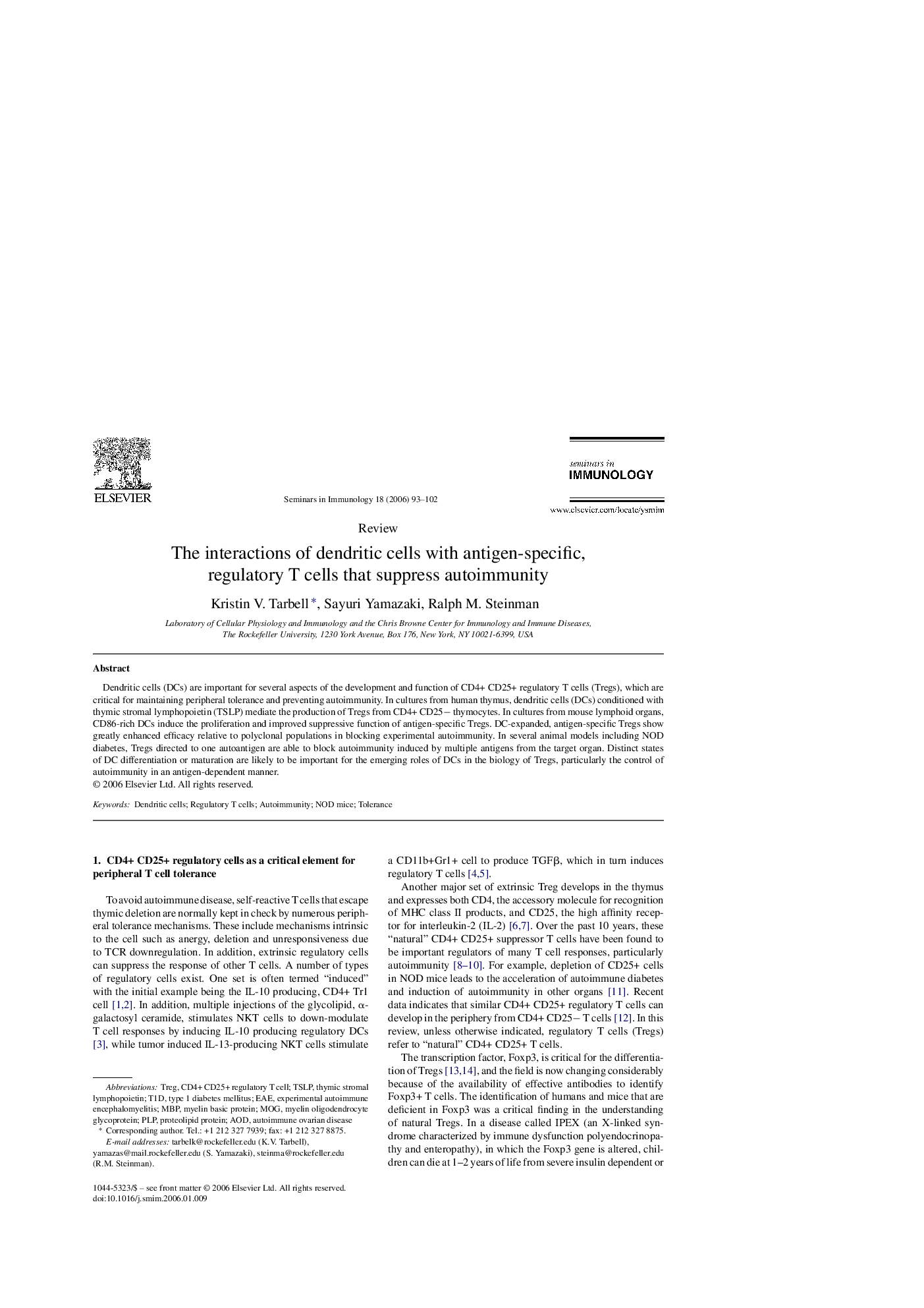| Article ID | Journal | Published Year | Pages | File Type |
|---|---|---|---|---|
| 3391756 | Seminars in Immunology | 2006 | 10 Pages |
Dendritic cells (DCs) are important for several aspects of the development and function of CD4+ CD25+ regulatory T cells (Tregs), which are critical for maintaining peripheral tolerance and preventing autoimmunity. In cultures from human thymus, dendritic cells (DCs) conditioned with thymic stromal lymphopoietin (TSLP) mediate the production of Tregs from CD4+ CD25− thymocytes. In cultures from mouse lymphoid organs, CD86-rich DCs induce the proliferation and improved suppressive function of antigen-specific Tregs. DC-expanded, antigen-specific Tregs show greatly enhanced efficacy relative to polyclonal populations in blocking experimental autoimmunity. In several animal models including NOD diabetes, Tregs directed to one autoantigen are able to block autoimmunity induced by multiple antigens from the target organ. Distinct states of DC differentiation or maturation are likely to be important for the emerging roles of DCs in the biology of Tregs, particularly the control of autoimmunity in an antigen-dependent manner.
